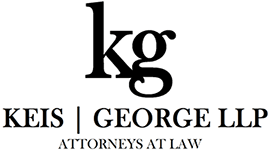While the frequency of Bankruptcy filings is unpredictable year over year, their presence is certain when pursuing subrogation claims. Now, throw into the mix an unsteady economy and the threat of a Defendant filing for bankruptcy is present. The Federal Bankruptcy Code provides for insurers to get around the automatic stay of a bankruptcy filing in certain situations. Below is a description of the three most commonly used sections to avoid the automatic stay in bankruptcy filings.
Discharge will not apply to debts obtained by fraud or defalcation
Federal Bankruptcy Code Section 523(a)(4) states that a discharge will not apply to debts obtained by “fraud or defalcation while acting in a fiduciary capacity, embezzlement, or larceny.” This situation often arises in the context of an employee theft claim. This section can be tricky due to the different definitions of fraud, embezzlement, and larceny in different jurisdictions. In order to prevail in removing the claim from discharge, you have to prove that the Debtor’s actions rose to the federal definitions of those crimes.
Discharge will not apply to debts obtained by willful and malicious injury by the debtor
Section 523(a)(6) states that a discharge will not apply to debts obtained by “willful and malicious injury by the debtor to another entity or to the property of another.” This section allows an insurer to avoid the automatic discharge on vandalism, theft, or criminal damaging claims. The key to prevailing under Section 523(a)(6) is proving intent. It is not enough to show a debtor caused injury to property, you have to show that the debtor intended to cause the injury. Again, the definitions of willful and malicious come into play in this section.
Avoid the automatic discharge
The most common section, which is used to avoid the automatic discharge, is Section 523(a)(9). Section 523(a)(9) exempts from discharge all debts related to “death or personal injury caused by the debtor’s operation of a motor vehicle, vessel, or aircraft if such operation was unlawful because the debtor was intoxicated from using alcohol, a drug, or other substance.” DUI claims are unfortunately all too common and often involve injuries to insureds. While a bankruptcy will preclude an insurer from collecting on the property damage caused by a Defendant driving under the influence, medical payments, uninsured motorists and underinsured motorists claims are not dischargeable. To learn more about how the federal bankruptcy code may apply to a file you’re currently working, contact an attorney with our subrogation practice.
